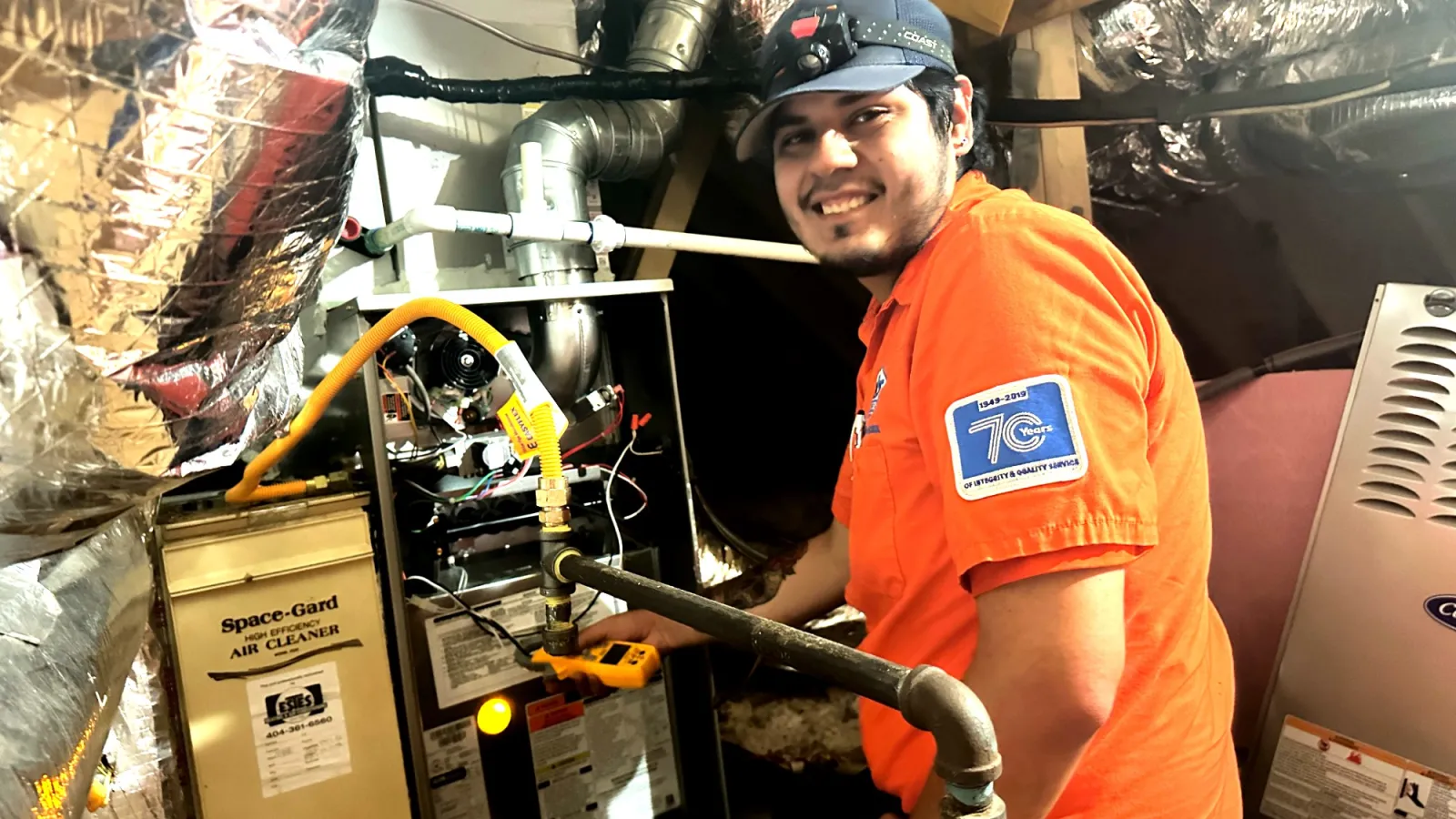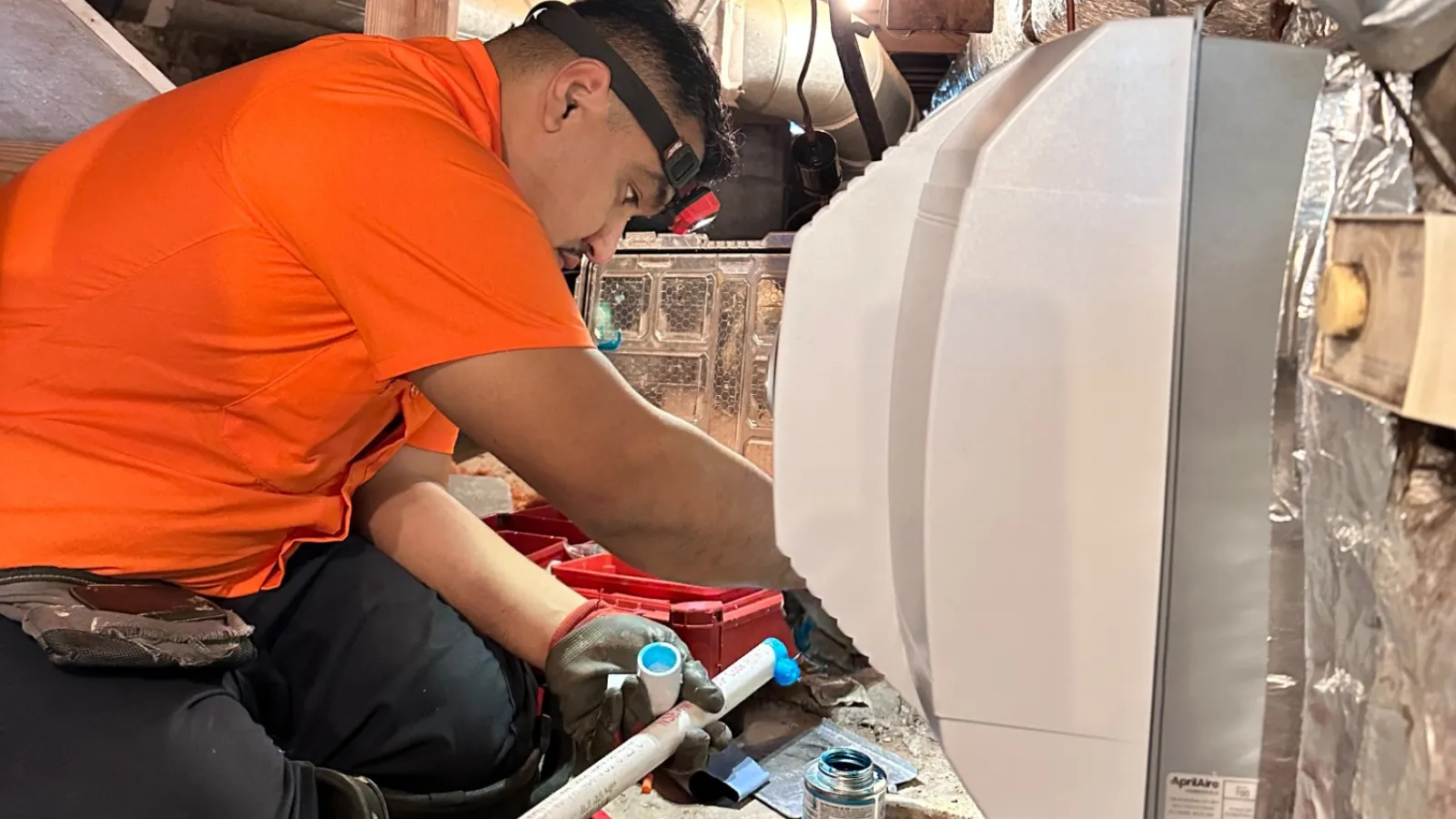Much like a cat asleep in a sunbeam, you can take advantage of the sun’s rays this winter. If you have a room with direct sunlight, open the blinds or curtains and welcome it in. Depending on the direction your home faces, this room may receive more sun in the morning or in the late afternoon. Soak it up – this will help your heating and air system.
The more heat your room absorbs from the sun, the less heat your heat pump or furnace must generate. After the sun has passed, close your blinds and curtains to trap the heat indoors. This technique is known as “passive solar.”
Passive Solar is Simply Energy Efficiency
There’s nothing complicated about the method of “passive solar.” It’s simply taking advantage of a building’s location, climate, and materials to minimize energy use. This method doesn’t mandate solar panels or anything similar. Let’s explore some examples. These are simple and will give your heating and air system a rest.
Heating and Air Hacks
First, start with your windows. If you’re building or replacing, choose energy efficient windows. If your windows aren’t going anywhere for a while, focus on your curtains. We recommend you choose a thermal-insulated variety.
These will be great all year. In the cooler months, they can trap the warmth indoors after a sunny day. In the warmer months, they can block the sun from entering and keep it from overheating your space.
Think carefully about your landscaping. If you have the ability to plant trees, place deciduous varieties near your windows. They’ll provide shade during the summer and block the sun from blasting through your windows. In the winter, they’ll lose their leaves, allowing the warmth of sun indoors.
If a room is positioned so it bears the brunt of a lot of wind, consider installing evergreens. They’ll block the majority of the cold air from winter storms. This ultimately helps your heating air system from needing to compensate.
Be sure to consult with a nursery before selecting your trees. Keep in mind root systems and other factors which may impact your foundation.
Georgia residents with allergies should be wary of the Chinese Elm, as well. According to researchers at Emory University, it aggravates allergies in Atlanta, despite its popularity with landscapers.
Heating and Air Technology
A quick way to update your heating and air system is to upgrade your thermostat. If you’re still using a manual dial model, this will make a huge difference. A basic programmable model will offer you programmable settings to mirror your routine during the week, on weekends, and on vacation.
This will match your home occupancy better. If no one is home during the week between nine and five, for example, you don’t need to heat or cool your home as much during that time. A program will automatically adjust the temperature so it will be comfortable when you arrive home.
Some models are Wi-Fi-enabled, so you can adjust yours remotely through an app on your smartphone or tablet. This is convenient whether you want to change the temperature from the airport, or from your upstairs bedroom.
If you’re considering this upgrade, call us at Estes Services. Some models are better suited than others for certain heating and air systems. Set yourself up for success by consulting with us first.
Call Estes Service for all your Heating and Air Needs
Georgia is a mixed climate. It requires both heating and cooling, although mostly cooling. Take advantage of any opportunity to offset the work of your heating and air system. Contact us today for all of your Atlanta heating repair or air conditioning service needs.




